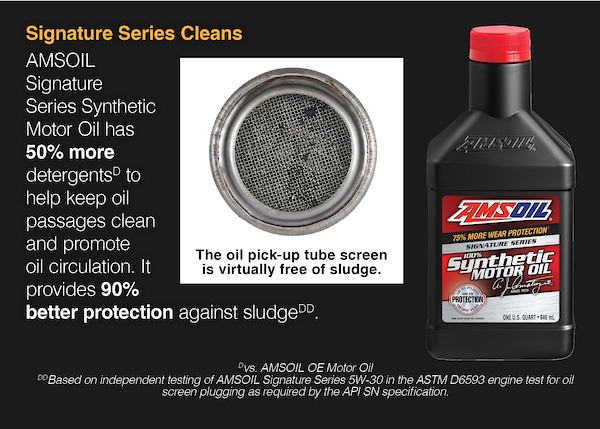To protect against engine sludge, use synthetic oil with thermally stable base oils and anti-oxidant additives, such as zinc dithiophosphate. These additives reduce the rate of degradation and prevent sludge formation.
Engine sludge is a common problem that can lead to serious engine damage if not addressed properly. The use of the right engine oil and additives can make a significant difference in preventing and cleaning up sludge buildup. Proper maintenance and regular oil changes with high-quality synthetic oils can help reduce sludge formation and maintain the engine’s performance.
It’s essential to choose the best engine oil that provides effective sludge prevention and protection for your vehicle to ensure its longevity and optimal function.
Understanding Engine Oil Sludge
Engine oil sludge is a gelatinous, tar-like substance that forms in an engine when oil breaks down and becomes contaminated with dirt, debris, and other engine byproducts. This sludge can restrict the flow of oil to vital engine components, leading to decreased lubrication and increased wear and tear. Understanding the causes and consequences of engine oil sludge is crucial for maintaining the health and longevity of your vehicle’s engine.
Formation Of Engine Oil Sludge
Sludge formation occurs when oil undergoes thermal degradation, causing it to thicken and lose its lubricating properties. This degradation is often accelerated by high operating temperatures, infrequent oil changes, and prolonged engine idling. Additionally, moisture and combustion byproducts can contribute to the accumulation of sludge, particularly in engines with poor ventilation and circulation.
Dangers Of Engine Oil Sludge
Engine oil sludge poses a myriad of risks to the performance and longevity of an engine. The accumulation of sludge can block oil passages, leading to insufficient lubrication of critical engine parts. This can result in increased friction, elevated temperatures, and heightened mechanical stress, ultimately leading to premature component wear and potential engine failure. Moreover, sludge buildup can impede the function of variable valve timing systems and oil control valves, causing erratic engine performance and reduced fuel efficiency.

Credit: www.ebay.com
Best Engine Oils For Preventing Sludge
Discover the best engine oils to prevent sludge and protect your car’s engine. Synthetic oil with thermally stable base oils and anti-oxidant additives, such as zinc dithiophosphate, can help reduce sludge formation and degradation. Avoid engine sludge build-up and extend the life of your engine with the right choice of engine oil.
Sludge formation in engines can lead to serious problems, including decreased performance and even engine failure. That’s why it’s essential to choose the right engine oil that effectively prevents sludge buildup. In this article, we will explore the best engine oils for preventing sludge and discuss synthetic oil options and additives that can help keep your engine clean and protected.
Synthetic Oil Options
When it comes to preventing sludge formation, synthetic oils are known for their superior performance. These oils are specially formulated with thermally stable synthetic base oils, which reduce the rate of degradation and oxidation. This means that synthetic oils can withstand high temperatures without breaking down, keeping your engine cleaner for longer. Additionally, synthetic oils often contain anti-oxidant additives, such as zinc dithiophosphate, which further help reduce degradation and prevent sludge formation. Here are some popular synthetic oil options that are highly recommended for preventing sludge:
- Mobil 1
- Valvoline SynPower
- Castrol EDGE
- Amsoil Signature Series
These synthetic oils have been extensively tested and proven to provide excellent protection against sludge formation, keeping your engine running smoothly and efficiently.
Additives To Prevent Sludge Formation
In addition to choosing the right oil, you can also use additives to further enhance sludge prevention. Dispersant additives, for example, are designed to prevent the formation of sludge and varnish deposits. These additives work by breaking down and dispersing any contaminants that may accumulate in the engine, ensuring they do not settle and form sludge. There are several reputable oil additives available in the market that can effectively prevent sludge formation, including:
- Liqui Moly Ceratec Engine Oil Additive
- Lucas Oil Heavy Duty Oil Stabilizer
- Rislone Engine Treatment Concentrate
- STP High-Mileage Oil Treatment
By adding these additives to your engine oil, you provide an extra layer of protection against sludge formation, prolonging the life of your engine and improving its overall performance. In conclusion, when it comes to protecting your engine against sludge, choosing the right engine oil and utilizing additives can make a significant difference. Synthetic oils with their thermally stable base oils and antioxidant additives are excellent choices for preventing sludge formation. Additionally, using dispersant additives can further enhance sludge prevention by breaking down and dispersing contaminants. By incorporating these recommendations into your engine maintenance routine, you can ensure that your engine stays clean, protected, and performing at its best.
Recommended Engine Oil Brands
Choosing the right engine oil is essential for preserving the performance and lifespan of your vehicle. When it comes to protecting against sludge, it’s crucial to opt for high-quality engine oils from trusted brands. Here are some recommended engine oil brands known for their sludge-fighting capabilities.
Tribotex
TriboTEX is a renowned engine oil brand that offers innovative solutions for combating sludge formation. Their advanced formulas are designed to prevent the buildup of sludge and maintain engine cleanliness, ensuring optimal performance and longevity.
Valvoline
Valvoline is a trusted name in the automotive industry, known for its exceptional engine oil products. With a focus on sludge protection, Valvoline’s engine oils are formulated to resist sludge formation, keeping your engine running smoothly and efficiently.
Divyol By Gandhar Oil
Divyol by Gandhar Oil is a leading brand that provides effective engine oil solutions for preventing sludge accumulation. Their high-quality oils offer reliable protection against sludge, preserving the health of your engine and minimizing potential issues.
Preventing And Removing Engine Oil Sludge
To prevent and remove engine oil sludge, choosing the best engine oil is crucial. Synthetic oil with thermally stable base oils and anti-oxidant additives, such as zinc dithiophosphate, helps in reducing sludge formation and degradation. Using dispersant additives and high-quality engine treatments can also prevent and remove sludge buildup effectively.
Use Of Engine Oil Additives
Engine oil additives are an essential component in the prevention and removal of engine oil sludge. These additives are specially formulated to disperse and dissolve sludge and varnish deposits that can accumulate over time. By incorporating engine oil additives into your regular oil change routine, you can effectively reduce the risk of sludge formation and maintain the optimal performance of your engine.
One widely used engine oil additive is a dispersant additive. It works by preventing the formation of sludge and varnish deposits, ensuring that the engine oil remains clean and free-flowing. This additive helps to keep the engine internals lubricated and protected, ultimately extending the life of your engine.
In addition to dispersant additives, there are also other types of additives that play a crucial role in sludge prevention. Anti-oxidant additives are commonly used in synthetic oils to reduce the rate of degradation caused by oxidation. One example of an anti-oxidant additive is zinc dithiophosphate, which helps to stabilize the oil and maintain its performance even under high heat and pressure.
It is important to note that not all engine oil additives are created equal. When selecting an additive, it is crucial to choose one that is compatible with your engine and meets the necessary performance standards. Consulting with a professional or referring to the manufacturer’s recommendations can help you make an informed decision on which engine oil additive is best suited for your needs.
Importance Of Regular Oil Changes
Regular oil changes are vital in preventing and removing engine oil sludge. Over time, engine oil can become contaminated with dirt, debris, and contaminants that can contribute to sludge formation. By adhering to a regular oil change schedule, you can ensure that clean and fresh oil is continuously circulating through your engine, minimizing the risk of sludge buildup.
During an oil change, the old oil is drained, along with any sludge and contaminants that may have accumulated. By replacing the old oil with new, high-quality oil, you provide your engine with adequate lubrication and protection against sludge. Regular oil changes also give you the opportunity to inspect the oil filter and replace it if necessary, further enhancing the effectiveness of the oil change process.
It is crucial to follow the recommended oil change interval provided by your vehicle manufacturer. This interval can vary depending on several factors, such as driving conditions and the type of engine oil used. By staying diligent with your oil change schedule, you can effectively prevent engine oil sludge and maintain the overall health and performance of your engine.
Case Studies And Experiments
Investigating the best engine oil for protecting against sludge involves case studies and experiments. Synthetic oils with anti-oxidant additives and zinc dithiophosphate help prevent engine sludge, while dispersant additives in oil prevent sludge formation. Learn how to effectively avoid oil sludge buildup and protect your engine.
Myth Busted: Will Synthetic Oil Clean Sludge?
Studies have debunked the myth that synthetic oil alone can effectively clean sludge buildup in engines. While synthetic oil provides enhanced protection against sludge formation, it may not completely eliminate existing sludge deposits.
Testimonials And Experiences From Users
Users have reported mixed experiences with different engine oils in combating sludge accumulation. Some have found success with products containing specialized additives, while others have not seen significant improvement.

Credit: blog.amsoil.com
Expert Opinions And Recommendations
For optimal protection against sludge buildup, experts recommend using high-quality synthetic oil with zinc dithiophosphate additives. Synthetic oils are known for their thermal stability and deter sludge formation, making them ideal for engine longevity and performance maintenance. Consider using a reputable engine oil additive with dispersant properties to further prevent sludge accumulation.
Insights From Bob Is The Oil Guy Forum
Bob Is The Oil Guy forum provides valuable insights on the best engine oils for protecting against sludge. Members discuss the effectiveness of different oils in preventing sludge buildup, sharing their experiences and recommendations.
Quora’s Take On Engine Oil Sludge
Quora offers expert advice on engine oil sludge, with users recommending products like BG EPR for internal engine cleaning. The community emphasizes the importance of choosing the right oil additives to prevent and remove sludge effectively.

Credit: m.made-in-china.com
Frequently Asked Questions
What Is The Best Oil To Reduce Sludge?
The best oil to reduce sludge is synthetic oil, which prevents sludge formation with thermally stable base oils and anti-oxidant additives like zinc dithiophosphate.
What Engine Oil Additive Prevents Sludge?
To prevent engine sludge, use oil additives with dispersant properties that prevent sludge and varnish formation.
How To Prevent Oil Sludge In An Engine?
To prevent oil sludge in an engine, use synthetic oil with thermally stable base oils and anti-oxidant additives. Synthetic oil reduces the rate of degradation and prevents the formation of sludge and varnish deposits. Regularly changing the oil with high-quality engine treatments can also help prevent sludge buildup.
Does Synthetic Oil Prevent Sludge?
Yes, synthetic oil helps prevent sludge in the engine by reducing degradation and using anti-oxidant additives.
Conclusion
Choosing the best engine oil for protecting against sludge is crucial for maintaining your vehicle’s performance. With synthetic oils, you can prevent sludge buildup and ensure the longevity of your engine. Look for additives like zinc dithiophosphate and dispersant additives to combat sludge formation.
Keep your engine clean and running smoothly by choosing the right engine oil.

